Marine Life & Conservation
Celebrate International Manatee Day by helping Manatees near and far
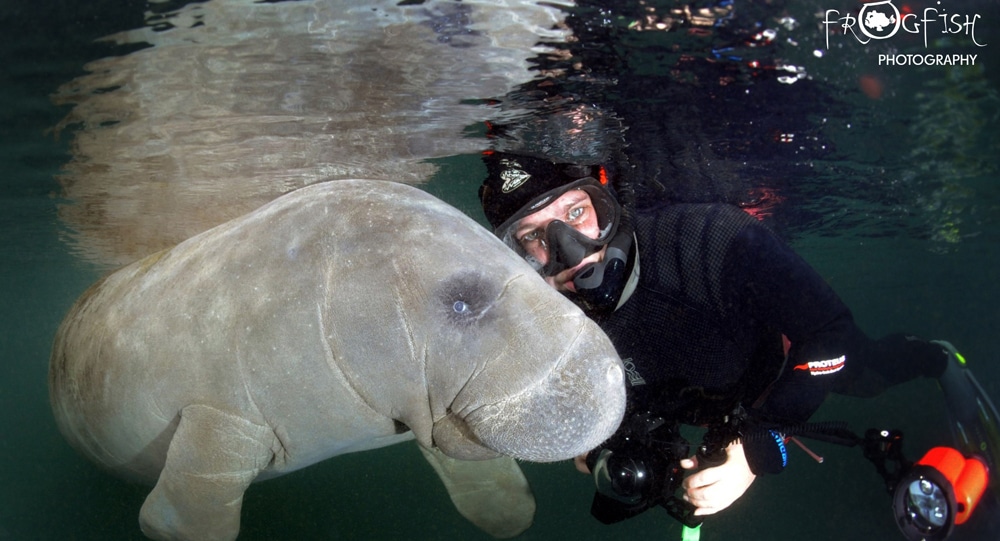
 Help manatees near and far on Tuesday, September 7th, International Manatee Day. Save the Manatee Club, the world’s leading manatee conservation organization, encourages boaters, homeowners, and caring manatee lovers to play a role in protecting manatees and their aquatic habitat.
Help manatees near and far on Tuesday, September 7th, International Manatee Day. Save the Manatee Club, the world’s leading manatee conservation organization, encourages boaters, homeowners, and caring manatee lovers to play a role in protecting manatees and their aquatic habitat.
At this time of year, manatees can be found in all kinds of waterways around the southeastern U.S., from freshwater rivers and lakes to saltwater coastal areas, estuaries, and canals. With the holiday weekend bringing busy boat traffic, boaters are urged to boat slowly in posted manatee speed zones and watch carefully for manatees on the move.
“Manatees prefer shallow waters that are rich with vegetation,” explains Patrick Rose, Aquatic Biologist and Executive Director for Save the Manatee Club. “When we are boating or recreating in their aquatic habitat, we must take care not to disturb them and especially not to hurt them.” Blunt impacts from accidental watercraft collisions are a leading cause of manatee injuries and mortalities in Florida.
However, it’s critical aquatic habitat loss that is the greatest long-term threat to the manatee’s survival. Save the Manatee Club asks homeowners to do their part to protect aquatic habitat by not fertilizing their yards, especially during the rainy summer season. Fertilizers and other yard chemicals can enter waterways and fuel the harmful algal blooms that kill seagrasses that manatees and other species need to survive. “What you put on your yard affects their lives,” says Rose.
Write to your elected officials to urge them to help manatees in Florida at savethemanatee.org/algae#tips, then learn more about manatees around the world. Save the Manatee Club donations have supported West Indian manatee conservation efforts in Belize, Mexico, and the Wider Caribbean as well as West African manatee research in Senegal and Cameroon. They have also sponsored rescues and health assessments for the elusive Amazonian manatee in Peru and Venezuela. Read more and donate to the International Rescue Fund at savethemanatee.org/
Responsible boaters, homeowners, and manatee advocates all play an important role in protecting manatees at home and abroad. Here’s a quick list of resources to review that can help anyone be a voice for imperiled manatees:
- Report sick, injured, orphaned, or dead manatees to the Florida Fish and Wildlife Conservation Commission (FWC) by calling 1-888-404-3922 (FWCC). Watch informative videos and get resources for your state at savethemanatee.org/rescue.
- Obey posted speed zones, wear polarized sunglasses to reduce glare on the water’s surface, avoid boating over shallow areas and seagrass beds, stash your trash, and never touch, feed, or give water to manatees.
- Request free tip cards, waterproof boating banners, waterfront signage, and other resources from Save the Manatee Club at savethemanatee.org/resources.
- Take a break from fertilizer and learn other tips that reduce pollution at savethemanatee.org/algae.
- Educators – gear up for the school year with free materials and a virtual guest speaker presentation from Save the Manatee Club. Visit savethemanatee.org/education.
Marine Life & Conservation
IUCN Spotlights Green Fins at Bali Ocean Days 2025, Calling for Stronger Business Model in Marine Conservation

IUCN (International Union for Conservation of Nature) Global Ocean Director, Minna Epps, has spotlighted Green Fins Indonesia along with a call for stronger business models that sustain marine conservation. Speaking at the inaugural session of Bali Ocean Days 2025 held on 7-8 February, Epps emphasised the need for sustainable financing to support and scale marine conservation initiatives such as Green Fins.

Activities earlier in the week with the Coral Triangle Center in Sanur and Ceningan Divers in the Nusa Penida Marine Protected Area shaped the IUCN Ocean Director’s message at the conference and showcase, aligning with the theme of the blue economy and impact finance to sustain marine ecosystems.
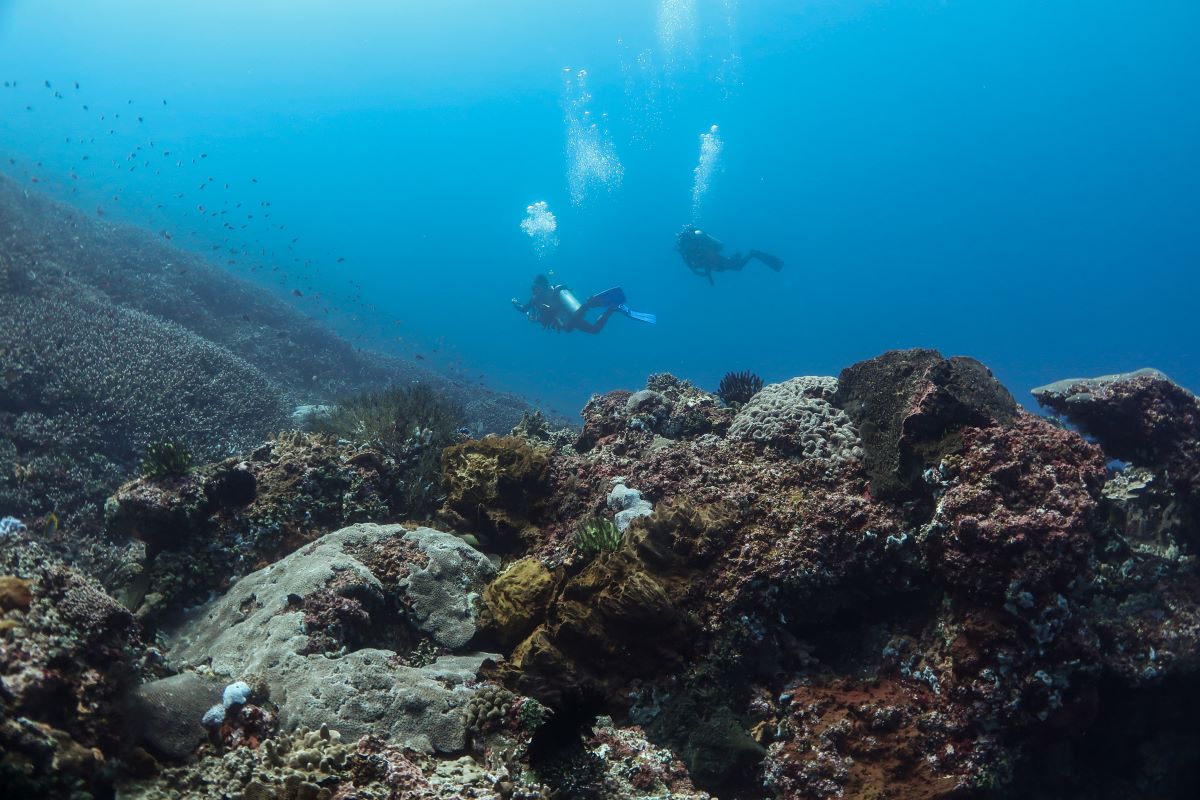
“Tourism has such a big impact on marine biodiversity, and we need it to adhere to a certain code of conduct,” Epps said. “That is why through our funding facilities, we worked with The Reef-World Foundation advancing Green Fins so dive operators can become certified with standards. But this kind of initiative has been around for a long time and it’s also a tool used to improve [MPA management], but it needs to come with a business model. I also believe in market-based instruments to evolve this programme.”

IUCN’s visit is part of their Blue Natural Capital Financing Facility (BNCFF), which supports at least 21 projects around the world, building the business case for investing in the future of our ocean.
In Indonesia, the project supported by IUCN was developed in partnership with The Reef-World Foundation, the Coordinating Body on the Seas of East Asia (COBSEA) and the Coral Triangle Center, which serves as the local implementing organisation for Green Fins. The initiative engages marine tourism businesses through voluntary sustainability certification based on the only internationally recognised environmental standards for diving and snorkelling operations. Green Fins’ activities aim to reduce negative environmental impacts associated with marine tourism activities as well as improve the management of marine protected areas.

IUCN’s promotion of Green Fins in Bali Ocean Days signals the need for greater private sector engagement in marine conservation across Indonesia and beyond.
Investors, donors, marine tourism operators and stakeholders looking to support scalable marine conservation solutions are encouraged to explore opportunities with The Reef-World Foundation, the international coordinator of the Green Fins initiative. To learn more about sustainable marine tourism and how to get involved, visit www.reef-world.org.

About Reef-World
The Reef-World Foundation is a registered UK charity which delivers practical solutions for marine conservation around the world. The charity promotes the wise use of natural resources – particularly coral reefs and related ecosystems – for the benefit of local communities, visitors and future generations. It is dedicated to supporting, inspiring and empowering governments, businesses, communities and individuals around the world to act in conserving and sustainably developing coastal resources.
Reef-World leads the global implementation of the UN Environment Programme’s Green Fins initiative, which focuses on driving environmentally friendly scuba diving and snorkelling practices across the industry globally. As such, the charity provides low-cost and practical solutions to local and industry-wide environmental challenges associated with the marine tourism industry. It provides education and capacity-building assistance to empower environmental champions (within the diving industry, local communities, authorities and governments) to implement proven coastal resource management approaches.
Visit www.reef-world.org to learn more or follow them on Facebook, Instagram and X.
About Green Fins
Green Fins is a proven conservation management approach – spearheaded by The Reef-World Foundation in partnership with the UN Environment Programme – which leads to a measurable reduction in the negative environmental impacts associated with the marine tourism industry. The initiative aims to protect and conserve coral reefs through environmentally friendly guidelines that promote a sustainable diving and snorkelling tourism industry. It provides the only internationally recognised environmental standards for the diving and snorkelling industry and has a robust assessment system to measure compliance.
Green Fins encourages and empowers members of the diving industry to act to reduce the pressures on coral reefs by offering dive and snorkel companies practical, low-cost alternatives to harmful practices – such as anchoring, fish feeding and chemical pollution – as well as providing strategic training, support and resources. By reducing the local direct and indirect pressures tourism puts on coral reefs, it helps make corals healthier and more resilient to other stresses such as the effects of climate change. Look for the Green Fins logo when booking your next dive trip.Visit www.greenfins.net to learn more or follow the initiative on Facebook, Instagram and X.
Blogs
Evolution of Manatees in Florida
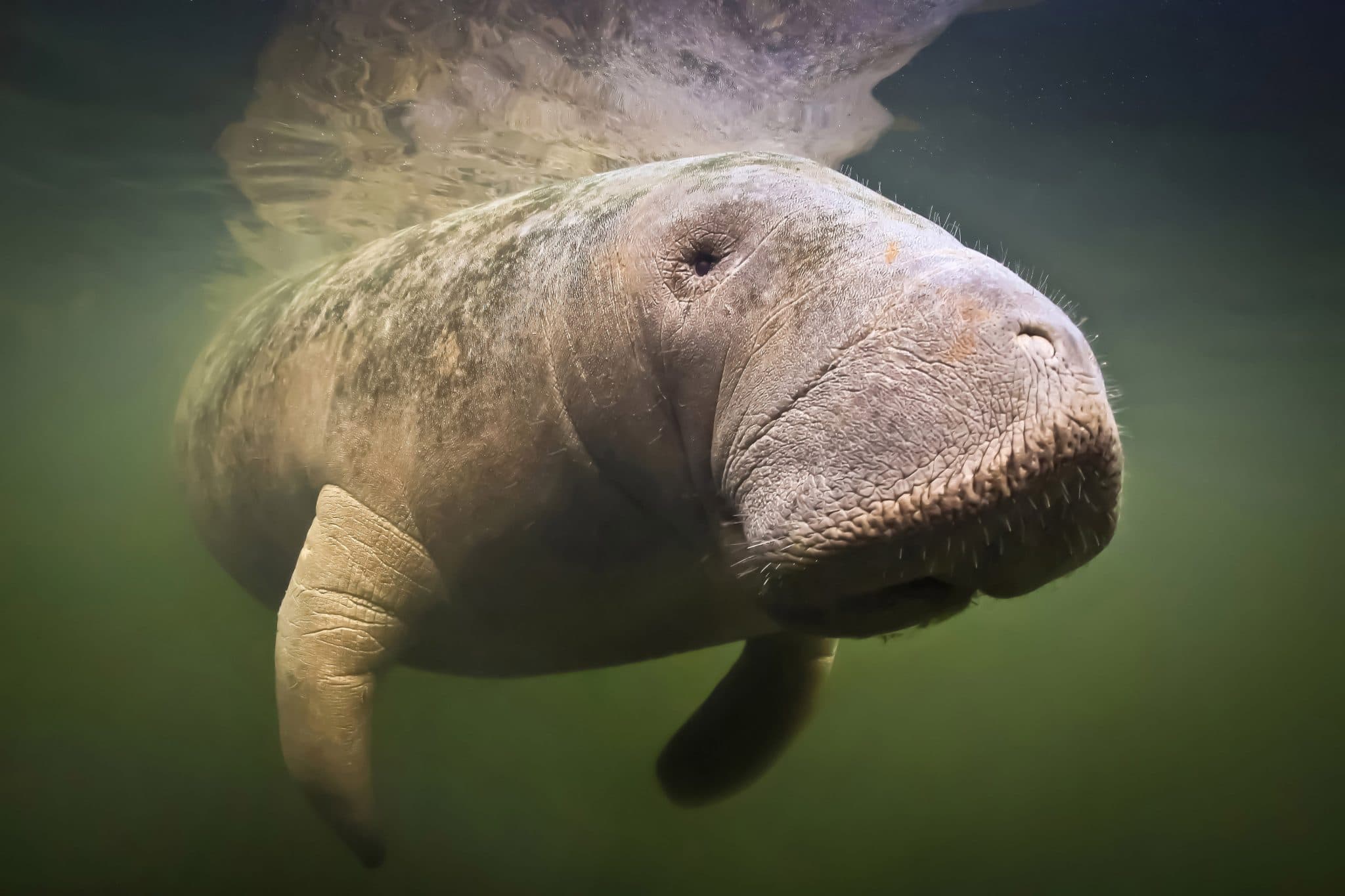
Op-ed by Beth Brady, PhD, Senior Science and Conservation Associate, Save the Manatee® Club
Recent news articles and broadcasts have claimed that manatees are not native to Florida or only arrived on Florida’s west coast in the 1950s. These claims, based on limited anthropological records, point to where manatees were historically exploited by humans and assume that a lack of evidence means manatees were absent from certain areas. However, absence of evidence is not evidence of absence—it’s like looking for stars in the daytime; just because you can’t see them doesn’t mean they’re not there. Moreover, genetic and fossil evidence indicate manatees have been present in Florida for the last 12,000 years.
The Florida Fish and Wildlife Conservation Commission (FWC), which manages Florida manatee populations, has created a manatee timeline highlighting key dates and notable information about manatee presence in Florida (https://myfwc.com/education/wildlife/manatee/timeline/). Historical records suggest that manatees have been observed in Florida as far back as the 1500s, with some details presented by the Florida Fish and Wildlife timeline aligning with evidence presented in the publication.
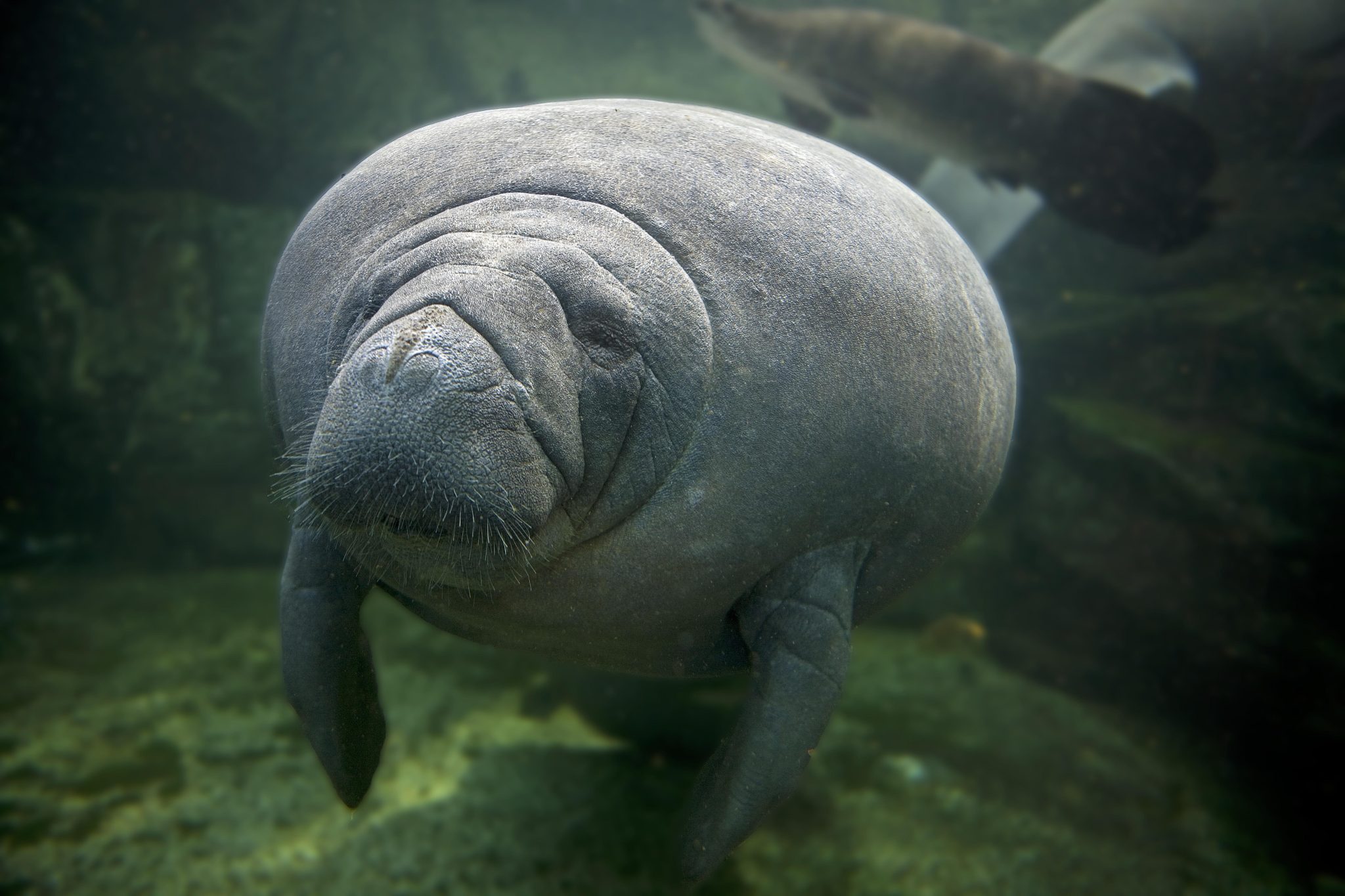
Manatee species, such as the African manatee and the Antillean manatee, continue to be poached by humans (Marsh et al., 2022). As a result, these species are difficult to observe in the wild and may adapt by foraging at night to avoid human encounters (Rycyk et al., 2021). This behavior could help explain why historical Florida manatee populations that were hunted by humans are absent from middens and rarely mentioned in historical accounts.
Further, the publication only briefly touches on the paleontological record and genetic evidence, which indicate that manatees have existed in Florida for a much longer period. Fossil and genetic evidence reveal a rich history of manatees in Florida. Manatees belong to the order Sirenia, which includes the Amazonian, African, and West Indian manatee species. While Sirenian fossils have been found globally, only Florida and the Caribbean contain specimens from every epoch over the past 50 million years (Reep and Bonde, 2006). The modern manatee, as we know it, emerged in the Caribbean about 2 million years ago (Domning, 1982).
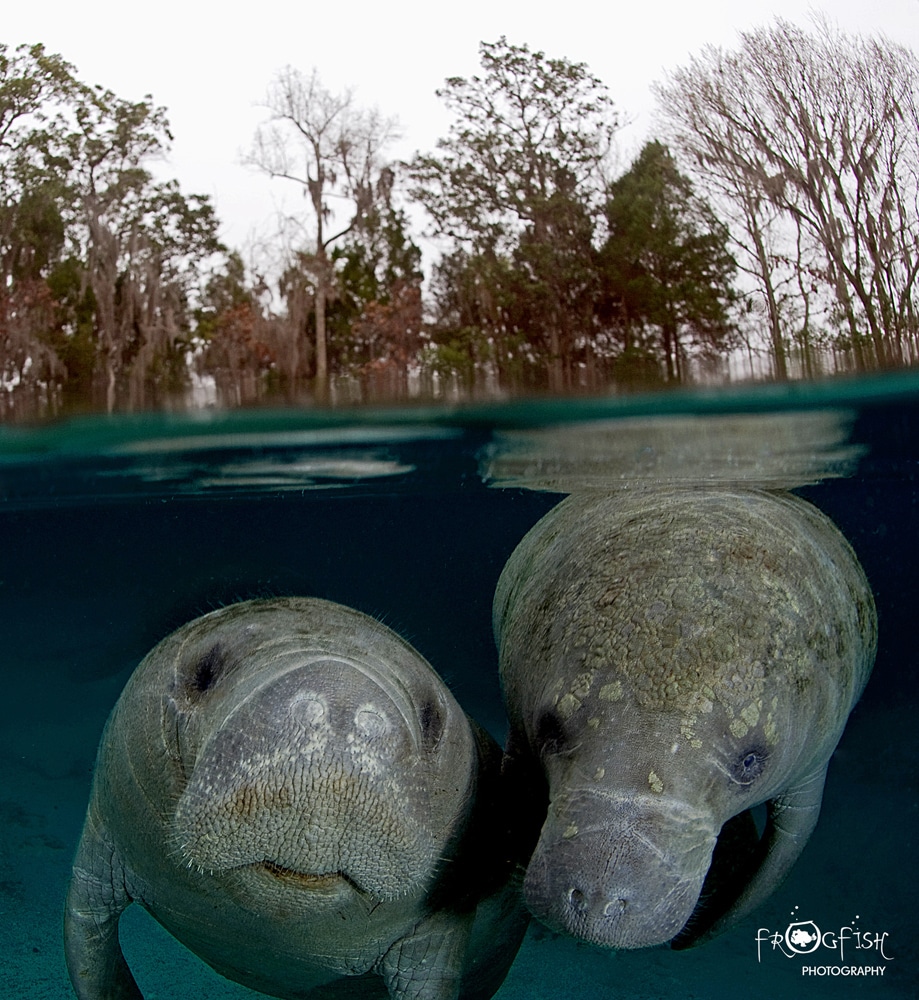
The evolution of manatees during the Pleistocene epoch provides valuable insights into how environmental changes shaped their distribution and genetic diversity. During the Pleistocene epoch (2.59 million to 11,700 years ago), there were roughly 20 cycles of long glacial periods (40,000–100,000 years) followed by shorter interglacial periods lasting around 20,000 years. At the start of these warmer periods, Caribbean manatees migrated northward with the warming waters (Reep and Bonde, 2006). Water currents and thermal barriers isolated these manatees from populations in Mexico and the Caribbean, leading to genetic divergence. Fossil evidence indicates that Trichechus manatus bakerorum lived in Florida and North Carolina about 125,000 years ago but did not survive the last glacial period, which began 100,000 to 85,000 years ago (Domning, 2005). This subspecies was eventually replaced by modern Florida manatees.
This evolutionary theory is further supported by genetic evidence. Research indicates that Florida manatees trace their evolutionary origins to Caribbean ancestors that migrated northward over the past 12,000 years (Garcia-Rodriguez et al., 1998). A 2012 study by Tucker et al. reinforces this theory, showing higher genetic diversity in manatees on Florida’s west coast compared to those on the east. Over time, core populations migrated northward, with some groups moving south and east along the Florida coastline before heading north along the Atlantic. This migration pattern left the west coast population with greater genetic diversity, while the east coast population retained only a smaller subset. These findings suggest that the founding population of Florida manatees—arriving approximately 12,000 years ago—originated along Florida’s southwestern coast, which became the center of the state’s manatee population (Reep and Bonde, 2006). The process of vicariance further supports this hypothesis; as geographic and ecological barriers emerged, they likely isolated the Florida manatee populations from their Caribbean ancestors. This isolation likely limited migration back and forth between regions, fostering the establishment of local populations in southwestern Florida.
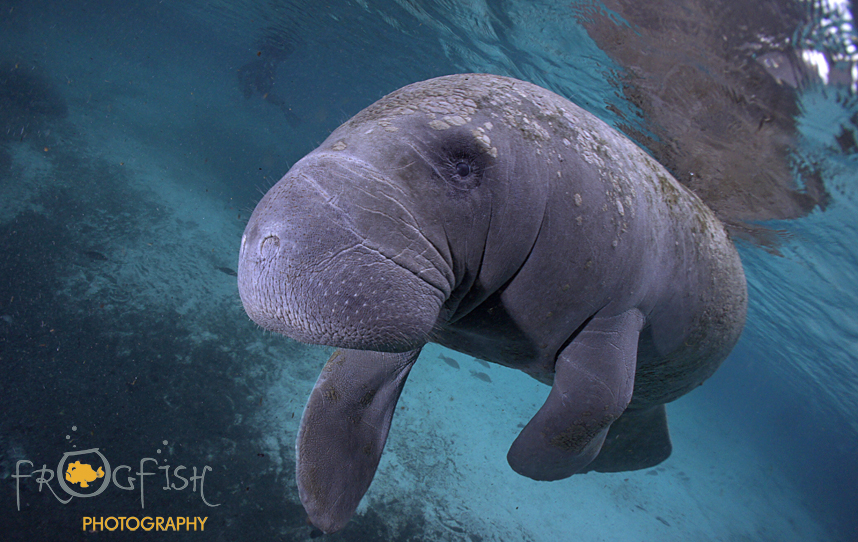
Manatees are not only a cherished symbol of Florida’s natural heritage but also a species with deep evolutionary and historical ties to the region. In sum, despite recent claims questioning their nativity, extensive fossil and genetic evidence confirms that manatees have been present in Florida’s waters for thousands of years, with ancestors dating back over 12,000 years. We agree with the authors of the published article that protecting these iconic creatures and their habitats is essential to preserving Florida’s unique ecological identity for future generations
Beth Brady is the Senior Science and Conservation Associate at Save the Manatee Club whose work focuses on manatee biology and conservation. She has her PhD from Florida Atlantic University and her Master’s in Marine Science from Nova Southeastern University.
-

 Gear Reviews1 month ago
Gear Reviews1 month agoGear Review: SurfEars 4
-

 News3 months ago
News3 months agoSanta Divers take the Plunge for Charity
-

 Marine Life & Conservation2 months ago
Marine Life & Conservation2 months agoPaul Watson Released as Denmark Blocks Japan’s Extradition Bid
-

 Blogs3 months ago
Blogs3 months agoExperience Malta and Gozo in 2025: A Paradise for Divers and Culture Lovers
-

 Blogs2 months ago
Blogs2 months agoJeff Goodman Launches Underwater Moviemaker Course with NovoScuba
-

 Blogs3 months ago
Blogs3 months agoThe Benefits of Underwater Photography Workshops
-

 News3 months ago
News3 months agoDive into Adventure: Limited Space Available for January Socorro Liveaboard Trip with Oyster Diving
-

 Blogs3 months ago
Blogs3 months agoDiscover Curaçao with the Ultimate Dive Vacation Guide – 2024 DEMA Special Edition
















